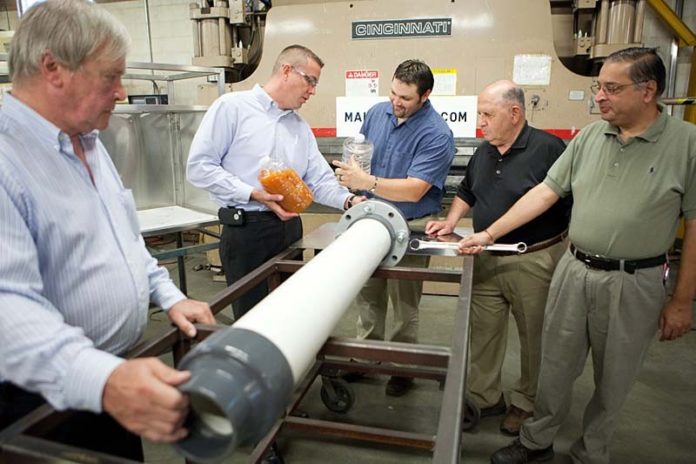
Howard Schachter is a water guy.
For 50 years, he worked as a metallurgical engineer concentrating on recycling wastewater and solid waste, then retired nearly two years ago.
Last year, his children asked him for a favor.
His son, Steven Schachter, a businessman in Dallas with links to the energy market, requested his father help clean up a controversial technique called hydrofracking, used for accessing oil and natural gas imbedded in the Earth’s crust.
A dirty byproduct of the process is the “frac water” that is literally blasted into rock formations and which some believe can pollute ground water and aquifers.
“The oil and gas industry is struggling with a major waste product. said Howard Schachter. “It’s in need of mediation and remediation, which is what I do.”
Advocates hail hydrofracking as an opportunity access massive gas and oil deposits and to relieve the United States of some of its reliance on foreign fuel.
But opponents complain that hydrofracking is environmentally destructive and requires tremendous amounts of later-unusable water.
Schachter refers to the past year of his life as his “last hurrah.” In June 2011, he built a small laboratory in East Providence to analyze roughly 300 wastewater samples from oil and gas wells and to develop a prototype. By January, his son Steven founded Petro-Cycle Solutions LLC.
Petro-Cycle Solutions’ prototype, now employed by Midstates Petroleum, out of Louisiana, treats frac water via “electro-coalescing.” The method electrically charges contaminants in frac water so they can be separated with a direct current.
The end result is crystal-clear water that is not potable, but “you can’t tell it from tap water,” said Schachter, and it is re-usable for more fracking.
Drilling a well requires hundreds of thousands to millions of gallons of water. In addition to protecting local ground water from contamination, treating and recycling wastewater could reduce the amount of water required for drilling to just tens of thousands of gallons.
While more than a dozen other companies are also attempting to fix hydrofracking’s wastewater conundrum, Schachter said Petro-Cycle Solutions differentiates itself by its relatively small prototype (its mobile system fits inside a horse trailer) and the small company behind it.
Currently, Petro-Cycle Solutions consists of CEO Steven Schachter and Chief Operating Officer Nilesh Patel. Howard Schachter is a senior consultant, although he is quickly returning to retirement). Schachter’s other three children are board members.
But Petro-Cycle Solutions has big expectations for the future. The company anticipates more than $2 million in revenue by mid-2013 and $4 million by mid-2014.
Petro-Cycle Solutions plans to expand its local labor force to eight people by early next year and to 30 people by the end of next year. •











